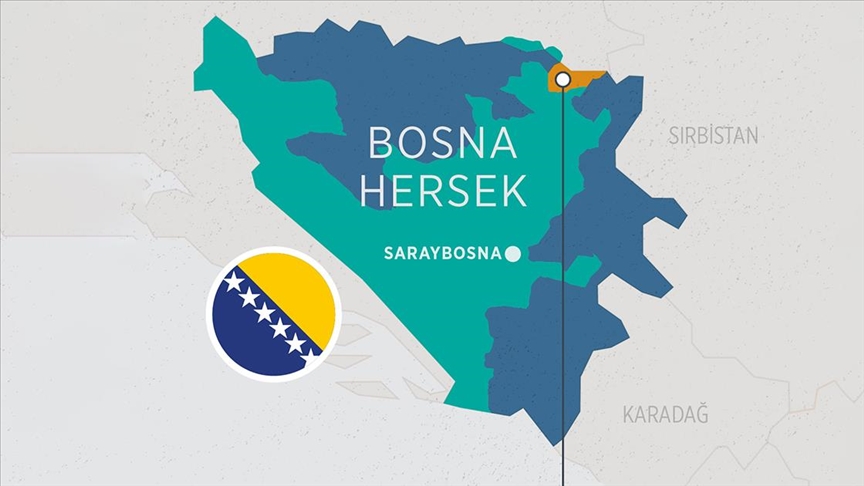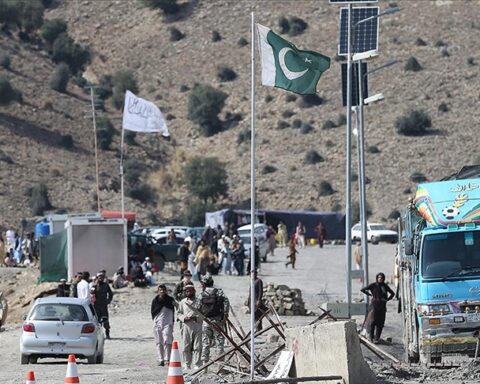Three decades after the signing of the Dayton Peace Agreement, Bosnia and Herzegovina continues to function as the world’s most elaborate political paradox: a state whose very survival depends on its permanent dysfunction. Conceived in the winter of 1995 as a ceasefire dressed up as a constitution, Dayton created two entities (Republika Srpska and the Federation of Bosnia and Herzegovina), ten cantons, and an alphabet soup of institutions — all supervised by a foreign governor known as the High Representative, whose decrees have the force of divine revelation and the shelf life of a press release. The result is a country that still behaves less like a state and more like a bureaucratic experiment whose main export is its own absurdity.
Over the past months, this delicate Frankenstein of international law has again flirted with self-destruction. The authorities of Republika Srpska—long accustomed to threatening secession whenever the political oxygen runs low—decided to outlaw the state-level Court, Prosecutor’s Office, and State Investigation and Protection Agency, effectively declaring that parts of the country no longer recognize its own laws. For weeks, Sarajevo braced for another round of nationalist theatre: resolutions, counter-resolutions, and televised invocations of sovereignty from people who long ago outsourced theirs to embassies.
But as with every “existential crisis” in Bosnia, the curtain fell without a climax. This week, in a gesture of sudden enlightenment—or more precisely, political fatigue—the National Assembly of Republika Srpska quietly withdrew all those defiant laws. No negotiations, no concessions, no “historic deal.” The rebellion simply expired, like milk left too long in the diplomatic sun. The international community congratulated itself for “stability,” while everyone else returned to their habitual despair.
To anyone familiar with the physics of Dayton Bosnia, none of this is surprising. The system is designed not to collapse, but to endlessly oscillate between hysteria and relief—a perpetual motion machine powered by resentment, dependency, and recycled press conferences.
Everyone in Bosnia and Herzegovina who imagined that aligning with foreign patrons would serve only their own cause has now received the same cosmic memo: great powers have no friends, only functions; and in the geopolitics of small nations, being useful is just the prelude to being discarded. The Serb leadership in Banja Luka and the Bosniak establishment in Sarajevo may shout at each other across the ethnic abyss, but both are reading from the same script—one written long ago in the offices of foreign mediators who long stopped watching the play.
How this colonial dynamic manifests itself—between the Serbs and Bosniaks of Bosnia and Herzegovina—is best illustrated by the following two scenes.
BANJA LUKA: In that mythic time when “visionaries,” inspired by the spells of the Serbian nationalist and neo-pagan thinker Dragoš Kalajić, were ecstatically sketching the borders of a Serbian future, the wartime president of Republika Srpska, Radovan Karadžić—according to Biljana Plavšić, herself a member of his wartime leadership—was burying amulets, “Grandma Stana’s triple-crosses,” in the meadows outside the western Bosnian towns of Glamoč, Grahovo, and Drvar, which would soon fall to the Croatian Army—so as to prove that Serbia’s future frontiers lie where Radovan’s deity decrees, not where the army comes to a halt. In short: when you pre-sell the territory, rebrand it as pseudo-theology.
Today, three decades later, the same theo-geopolitical method prevails—only in a reality-TV edition for the regime’s Belgrade channels, Pink and Happy. Instead of triple-crosses, they bury laws. They banned the Court, the Prosecutor’s Office, and SIPA, proclaimed the territory “liberated” from Sarajevo’s tyranny, and then—once it became clear that Trump’s lobbyists had led them by the nose, and that lithium can be snatched without first pointlessly turning Republika Srpska into a new (American) Transnistria—hop!—they repealed the lot. “God’s will” manifested itself again, this time as a judgment in PDF.
And now, as if to prove that divine irony never sleeps, the president of the ruling SNSD party and now former president of Republika Srpska, Milorad Dodik, has meekly accepted his own political decapitation after the State Court of Bosnia and Herzegovina found him guilty of violating the decisions of the “High Representative.” The man who for years thundered that he would “never recognize a foreign governor” now promises to “respect the decision of the judiciary”—the very same judiciary whose existence he had declared illegal only weeks earlier. In a statement that would be tragic if it weren’t so pitifully comic, Dodik lamented: “I remain calm because I have done everything in accordance with the will of the people and before God.”
Radovan Karadžić at least had a morbid flair—when he lied, it sounded like he was directing an apocalyptic blockbuster: an atomic bomb we’re buying from the Russians, Tesla’s wonder-weapon, an archangel draped in the Serbian tricolor, the devil crushed by the “ancient” three-finger salute that, incidentally, the “democratic” leader Vuk Drašković invented in 1990—but who bothers with such trifles now. Today’s heirs of the mad king and mass murderer are pure tedium—clerks of the apocalypse who rubber-stamp their revolutions and annul them by the due date. Bureaucrats without drama; an apocalypse without imagination.
SARAJEVO: Sarajevo marked the centenary of the birth—and the twenty-second anniversary of the death—of the wartime leader of Bosnia’s Muslims and Chairman of the Presidency of the Republic of BiH, Alija Izetbegović: a “visionary” for all those whose vision in life never reached beyond the corner shop, and who turned Bosnia into an app for international occupation—complete with ceremonial tinsel of pain and pride.
And, as every year, the camera caught the same bizarre tableau: in the front row, right beside the “father of the nation,” stands the grave of the psychopathic killer of Sarajevo Serbs, Mušan “Caco” Topalović—proof that in Izetbegović’s vision of Bosnia even sepulchral culture isn’t grounded in merit but in the symbolic password “for our cause.” The closeness of those two graves is the truest portrait of Dayton Bosnia: cheap moralizing and crime under the same flag and with the same sponsors.
Politicians, as always, delivered their set-piece speeches, in which it’s hard to decide what insults the intelligence more—the empty rhetoric or the belief that anyone in the audience still buys it. Each repeated his own version of the legend about “great wisdom,” “historic responsibility,” and “faith in man”—as usual, until the thread was lost over who led whom and who buried whom.
Ah yes—afterwards, the National Theatre staged, of all things, a symphonic poem inspired by Izetbegović’s epoch-making work My Escape to Freedom. The book contains that famous line:
“When I lose the reasons to live, I will die.”
Judging by everything, he lost those reasons long ago—but the Idea lived on, like a familiar spirit feeding on other people’s intelligence and on a collective pathology of self-pity.
In other words, if Alija Izetbegović was a visionary, brilliant thinker, then so is every pensioner who underlines other people’s thoughts in random books to flirt with the lady at the market stall. With the difference that Alija blended his underlinings into a handful of titles—about as entertaining as a cup of coffee with the attendees at a 1942 “moral renewal” seminar led by the military vicar of the Nazi-allied Independent State of Croatia, Alojzije Stepinac.
EPILOGUE: And so, thirty years after some were burying “Grandma Stana’s triple-crosses” and others were printing maxims for the book My Escape into a Reality That Doesn’t Exist, Bosnia and Herzegovina remains a monument to two basic idiots—one who took advice equally from American spooks and village sorceresses, and another who thought you could get a state on credit from the riffraff of the wider world.
Banja Luka now buries laws instead of crosses; Sarajevo stages bizarre symphonies instead of doing politics. Both sides gaze proudly at each other across the same abyss like principal and variable interest on the same unpaid loan.
Meanwhile, sovereignty in Banja Luka comes neatly packaged with a foreign logo. Around Lopare on the Majevica range, Switzerland’s Arcore AG—with Canada’s Rock Tech Lithium in tow—is mapping and marketing a lithium-boron-magnesium bonanza, promising Europe “decades” of strategic supply while locals promise decades of protests (and respiratory problems). In short: bury the laws today, unearth the ore tomorrow—call it “strategic autonomy,” invoice payable in Frankfurt.
Across the map, London and Berlin are discovering their own “innovations.” The UK has just deployed border officers to the Western Balkans and is openly floating “return hubs” in the region (one of those phrases that sounds humane until you translate it), even as its embassy in Sarajevo briskly denies any talks about parking people in Bosnia. Brussels signs a new Frontex status agreement with BiH; Berlin leads the chorus for “tougher” asylum rules. Net effect: the Balkans as Europe’s external hard drive—store your minerals here, cache your migrants there—while everyone pretends it’s capacity-building
Dayton Bosnia has thus become the perfect perpetuum mobile of Balkan absurdity: the less state—the more presidents; the less thinking—the more “great thinkers”; the less future—the more commemorations. One lot sinks “national honor” into the mud; the other rummages each year through Izetbegović’s notebooks as if they were the magic tablets of Hermes Trismegistus.
And in the end, when all is tallied, a single shared fate remains: peoples who, each in their own vision, fled into freedom—and who, thirty years later, are still running in circles like hamsters in a cage made of myth and myths. “God’s will,” it seems, has finally come to pass:
Neither Bosnia nor Herzegovina nor Republika Srpska has collapsed—only basic sanity has emigrated and filed, abroad, for permanent political asylum.
And so we arrive at the real irony: the socialist Yugoslavia of old—flawed, bureaucratic, often authoritarian—at least aspired to be a genuine social state. It made its share of mistakes, but it was a state in more than name alone. What stands in its place now in Bosnia and its neighboring marionette states are not merely failed states—they are failures by design. Puppet polities held upright by foreign supervision and local corruption, powered by inertia, cynicism, and the endless trade in victimhood, producing imitation governments and decorative oppositions.
Real opposition—critical, creative, and morally grounded—has yet to be born, because it cannot grow in soil deliberately sterilized by dependency and deceit. Until that happens, until a politics emerges that is not built on recycled myths or imported mandates, the future will belong not to nations, but to the marketplace of despair: politicians selling chauvinistic hatred, foreigners renting the land, and societies still running in circles—each convinced it’s marching toward freedom.
That opposition, when it finally takes shape, must not be a committee of moralists or a club of professional dissidents. It must be an organized front — social, labor, ecological, and civic — built on the conviction that the land, the rivers, the mines, and the power plants belong to the people who live beside them, not to the multilateral conglomerates that drill through them or the politicians who sign them away. And it cannot stop at the borders of Bosnia and Herzegovina. It has to be regional, a Balkan counter-current to the twin colonialisms of Brussels and the local elites who pretend to serve it. Only a movement of that scale — cross-ethnic, cross-border, and unbought — could finally turn this exhausted periphery from a subcontractor of empires into a community that owns both its misfortunes and its future.
Source: https://znetwork.org/znetarticle/dayton-bosnia-and-the-future-that-never-arrived/






